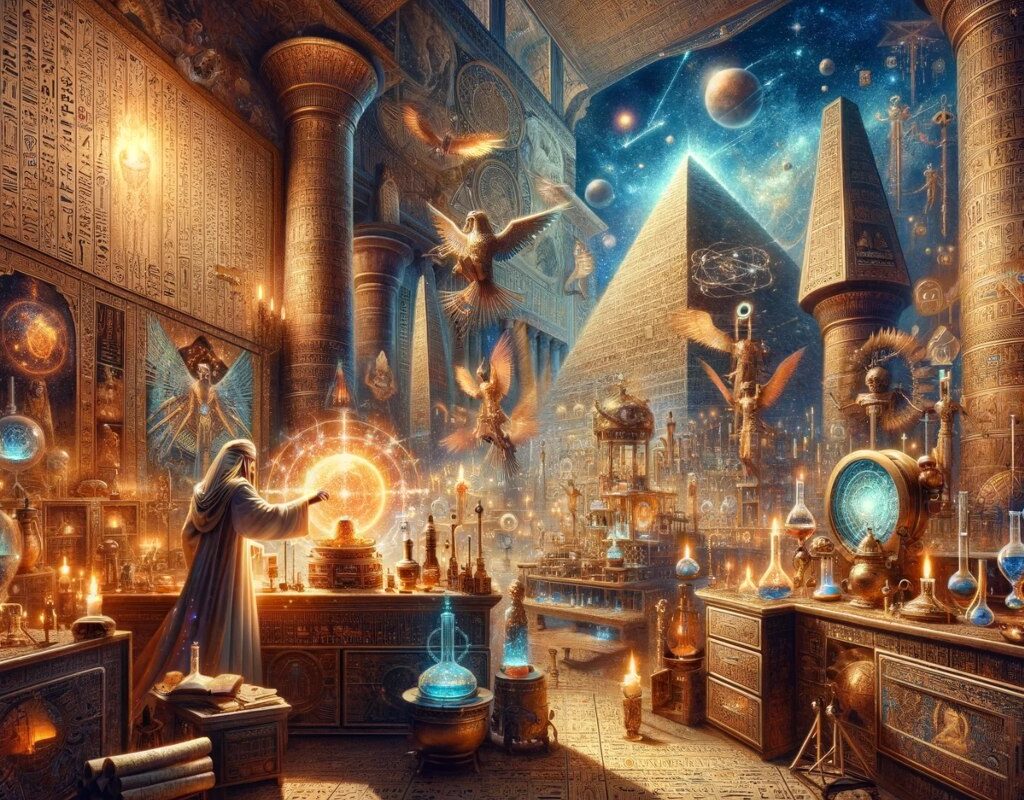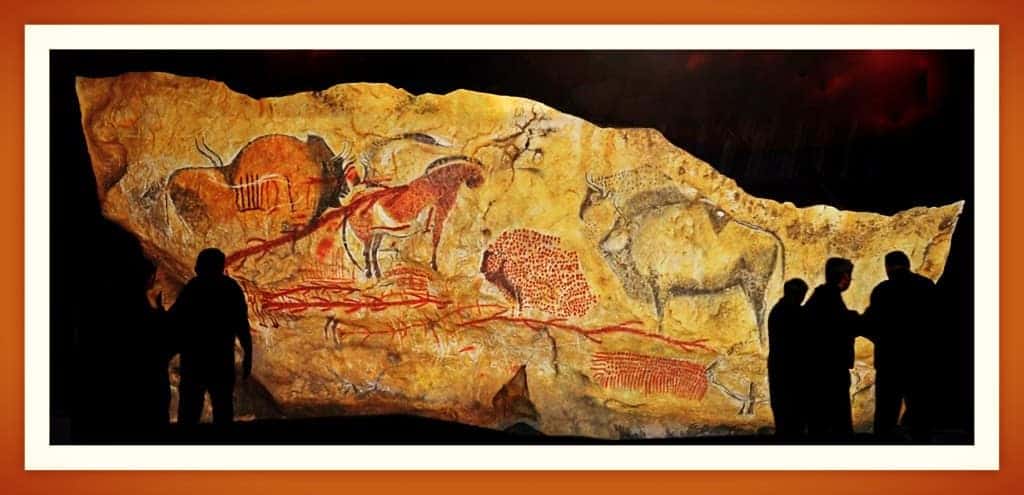The Emerald Tablet: A Cornerstone of Esotericism
Regarded as the linchpin of Western esotericism, the Emerald Tablet, discovered in the crypt of Hermes Trismegistus by Alexander the Great, stands as the pure essence of arcane knowledge. Long concealed through the ages, this text, with its name hinting at the gemstone emerald, reveals to us:
“As above, so below. All emerge from a single essence, with the Sun as its father and the Moon as its mother. Nurtured by the Earth and fanned by the Wind, it gives birth to all miracles. A fire turned to earth.
The key lies in skillfully separating the subtle from the dense. Master both realms and with lunar light, banish the darkness. With might, you’ll reign over all, be it ethereal or tangible. As the universe unfolds, so does the inner realm, from which spring the wonders of the wise.
Hermes Trismegistus, thrice-great, remains its guardian…”
Rituals and Symbolism in Alchemy
In its ritualistic dimension, alchemy employs resonant repetition to amplify the vibrations of elemental particles, all for one purpose: the well-being and evolution of humanity.
Whether through spoken words, the Violet Flame, or visualization, these alchemical methods hold the power to shift human emotions, transforming hatred into love, unbridled passion into sensitivity and fear into wellsprings of creativity and joy. Thus, human energy is refined, elevating its frequency until full metamorphosis is achieved.
Often seen as the forerunner to modern chemistry, alchemy also has profound mystical and spiritual roots. Two central figures, Hordjedef and Hermes Trismegistus, epitomize the rich tapestry of alchemical knowledge:
Hordjedef
- Role: One of Pharaoh Khufu’s sons, best known for constructing the Great Pyramid of Giza.
- Contributions: Celebrated for his writings, notably a text titled “Wisdom” or “Instruction Text.” In an age where literacy was scarce, writers were often revered, even seen as magicians.
- Legacy: Though not directly known as an alchemist, Hordjedef underscores the deep connection between written wisdom and the magical power attributed to texts in ancient times.
Hermes Trismegistus
- Role: This legendary figure, translating to “Thrice-Great,” is often hailed as history’s inaugural alchemist.
- Origins: A fusion of the Egyptian god Thoth, the deity of writing and wisdom and the Greek god Hermes. Over time, these two deities, sharing numerous traits, melded into one: Hermes Trismegistus.
- Contributions: He’s credited with 42 wisdom books, spanning subjects from astrology to alchemy. Fundamental to the Hermetic tradition, these texts influenced numerous thinkers and mystics across centuries.
- The Book of Thoth: Perhaps his most renowned text, is said to house the world’s entirety of knowledge.
- Legacy: The reach of Hermes Trismegistus extends beyond alchemy. Philosophical, astrological, magical and other esoteric traditions owe much to his teachings, with many spiritualists and occultists still turning to his wisdom today.
Both Hordjedef and Hermes Trismegistus underscore the ancient intertwining of knowledge-seeking with spirituality and magic. Alchemy mirrors this melding, aiming not only to alter worldly materials but the very soul of the alchemist.
From Ancient Egypt to the Renaissance: The Groundbreaking Influence of Imhotep and Paracelsus
Imhotep and Paracelsus, though hailing from distinct eras and cultures, remain towering figures in the annals of medicine, alchemy and philosophy.
Imhotep
- Ancient Egypt: Imhotep graced the Old Kingdom era and is lauded as one of history’s earliest polymaths.
- Architect & Physician: Renowned for designing Djoser’s step pyramid in Saqqara, a pioneering massive stone structure. Beyond architecture, his strides in medicine deem him one of history’s inaugural physicians.
- Deification: The Egyptians later deified him, aligning him with Thoth, the wisdom and medicine deity and Asclepius, the Greek god of healing.
Paracelsus
- Breaking Tradition: Paracelsus challenged established medical and alchemical norms. He critiqued mainstream medical practices, championing nature as the ultimate teacher.
- Psychosomatic Medicine: One groundbreaking concept was the intrinsic bond between body and spirit. He believed that healing the body necessitated healing the spirit. This precursor to psychosomatic medicine was revolutionary in his time.
- Hermetic Principles: “As above, so below” articulates the link between the macrocosm (universe) and the microcosm (individual). Paracelsus staunchly believed in this interconnectedness, integrating it into his medical and alchemical approaches.
- Legacy & Controversy: Despite his brilliance, Paracelsus was divisive. His iconoclastic views often pitted him against his contemporaries. Yet, his enduring legacy has shaped modern medicine and spiritual alchemy.
Both Imhotep and Paracelsus stand as a testament to individuals who were ahead of their times, laying foundational work for future trailblazers. While Imhotep exemplifies the ancient blend of religion, medicine and architecture, Paracelsus epitomizes the Renaissance merger of alchemy, medicine and philosophy…




